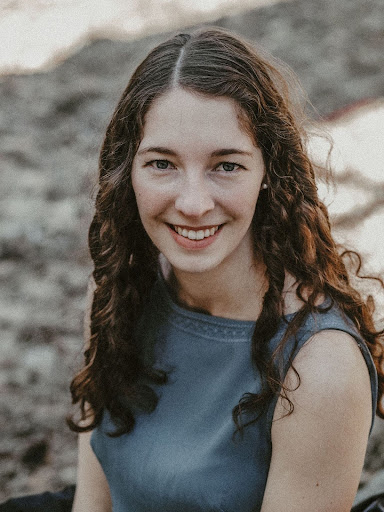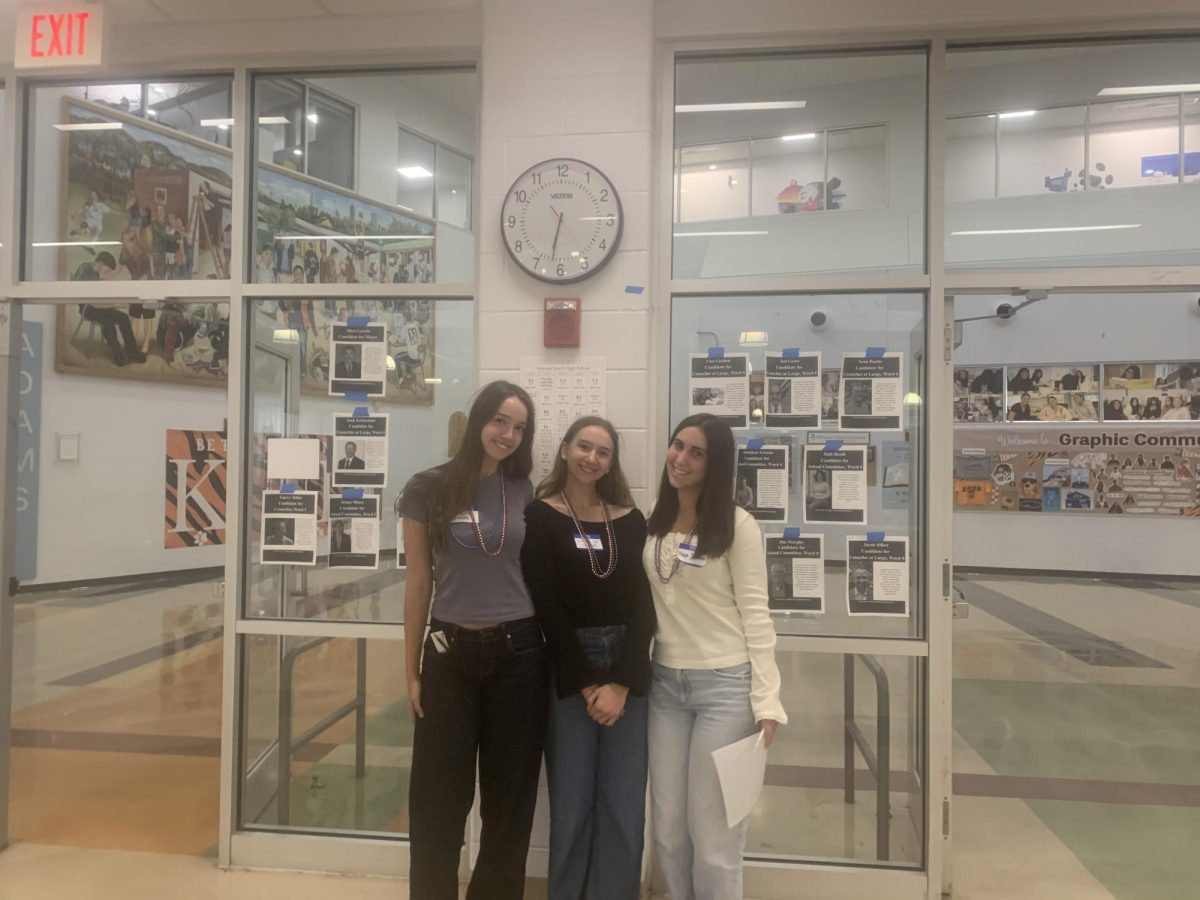 [/media-credit]
[/media-credit]
- Meterologist Joe Joyce explains the causes of climate change.
by Perrin Stein
Experts disputed the causes of climate change as a part of the Ecology of Disaster Panel, which was held in the dance studio.
Science department head Amy Winston introduced the four panelists, and science teacher Barbara Gibson began the session by discussing Hurricane Katrina from a scientific perspective.
Gibson posed questions as a way of introducing the topic and as a way of making students think. For example, she asked, “Nobody talks about the ecology of New Orleans—what happened to the plants and animals in that space? What happened to the ecosystems around that space?”
Then, the four panelists spoke for approximately eight minutes each, presenting varying beliefs about climate change. At the end of the session, the audience was able to ask questions that engaged the panelists in a heated discussion about the causes of climate change.
First up was Joe Joyce, a meteorologist for WBZ and a climate skeptic, meaning he does not think humans are the only cause of climate change. He explained that weather is dynamic, and climate change is a continual and necessary process for the planet. “Climate change is here,” he said. “It’s been here forever, and it will be here forever.”
The reason that Joyce does not think climate change is caused by humans is that “the oceans and the sun play a huge role in weather patterns, and in fact, there are natural periods of warming every 30 years called El Niño.”
Since the 1990s, the earth has been in a period of cooling, La Niña, despite the trend of warmth, according to Joyce. He does not attribute this anomaly to human activity. Instead, he said that “there are bigger things at play,” he said.
The other climate skeptic at the table, hydrologist Linda Hutchinson spoke next. Her standpoint is that there is not enough weather data to make the sweeping generalization that climate change is caused by humans.
She cautioned the audience to be skeptical of the media because she believes it blows climate change out of proportion.
“The media is telling us that there are more severe storms now, as a result of global warming, but there might just be better weather detection technology,” she said. “Consider the fact that 100 years ago, the newly formed National Weather Bureau relied on ships to report storms, so there were probably hundreds of undetected storms and hurricanes.”
Biologist Richard Primack has no doubt that climate change is caused by humans. For the past 13 years, he has studied leafing out times of plants in the Boston area. Through his research, he concluded that plants are blooming seven to 10 days earlier than they did in 1999.
“This is due to the fact that the earth is one and a half degrees warmer than it was 13 years ago, which is caused by the increased amount of carbon dioxide in the atmosphere,” he said. “Humans are what increase the carbon dioxide levels in the atmosphere.”
The problem with earlier leafing out times is that some plants cannot adjust to this warmer weather, so they are in decline, he said. “I predict that in the not too far future there will be different flora because of climate change.”
Lastly, Zyg Platar, a law professor at Boston College who focuses on environmental regulations, presented his opinions. He said that preventative methods must be taken to ensure that “horrible consequences, like those detailed in Zeitoun, don’t happen.”
He said that the key to prevention is “planning for the inevitable disaster.” Plans should be focused on giving money to a variety of organizations—not just lobbyists and oil companies—and adapting to the ecology and landscape of the earth, according to Platar.
“All disasters can be categorized by complacency, collusion and neglect,” he said. “We need to look at the causes of disasters in order to learn from our mistakes—to improve for the future.”













































